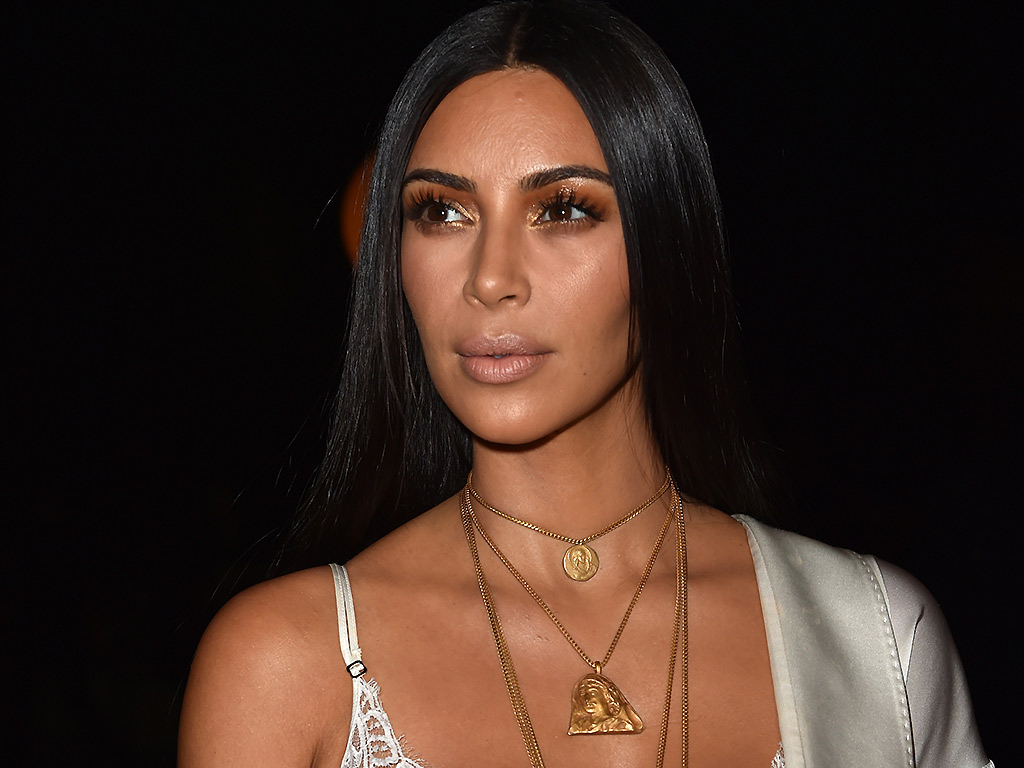Kim Kardashian West has managed to upset the internet not once but twice in less than a week between the release of her new body makeup collection and her shapewear line. And while virtually any new venture the Kardashians embark on is rife with controversy, this time I agree with the righteousness in the rage.

At the end of last week, the reality star and budding lawyer launched her (already sold-out) Skin Perfecting Body Foundation — makeup for arms, legs and other body parts — geared to help hide scars, veins, dark spots and other skin imperfections.
Mind you, body makeup, regularly used for film and television, has been around for decades but never marketed with such a glam effect of “perfecting” every body part head to toe.
The body makeup collection further exacerbates the notion that female imperfections are unacceptable. In effect, Kim is endorsing the idea that being normal isn’t normal and everything needs a smooth, Photoshop finish — yes, even your legs. And while we can’t point all the blame at Kim because she didn’t create these unrealistic beauty ideals, she certainly contributes to them in a very big way.
While some fans seemed over the moon about the thought of lathering their legs in foundation, others were less enthused.
https://twitter.com/linseygodfrey/status/1143225799698313216
Among those swift to respond was Jameela Jamil, who has been quite vocal in calling out the KarJenners for seeding unrealistic beauty ideals on impressionable young minds.
https://twitter.com/jameelajamil/status/1143214714568073216
Jamil also took the opportunity to highlight model Winnie Harlow, a woman with vitiligo, who proudly embraces her skin condition.
https://twitter.com/jameelajamil/status/1143448829833838593
But the fact that KKW’s body makeup sold out mere hours after its release shows the power of the “Kardashian effect.”
Brands pay upwards of $750,000 for a single post on Kim’s Instagram, and Kylie costs even more at $1 million. Their financial success cannot be denied. But strong sales and a strong moral compass are not the same thing. With a captive audience — nearly 224 million social media followers, to be exact — Kim’s use of her influence is unsettling, as she appears to prey on the insecurities of young women for her personal financial gain. In a revolving door of “must-haves,” Kim — along with the rest of the KarJenner clan — is endlessly peddling products to young women, “helping” them with the solutions needed to achieve picture perfection.
To add insult to injury, just a few days after the body makeup release, Kim announced her new shapewear line, named Kimono. The line’s website explains that Kimono is “a new, solution-focused approach to shape-enhancing underwear” and “is fuelled by her passion to create truly considered and highly technical solutions for every body.” And, obviously, a play on her own name.

Get breaking National news
Shortly after the reveal, a huge number of people took to social media, calling Kim out for disrespecting Japanese culture and flippantly choosing the word “kimono,” a traditional, loose-fitting, demure robe worn for special occasions that is virtually the opposite of her second-skin like underwear. More significantly, the item of clothing is imbued with hundreds of years of history.
Some even deemed her use of the name as cultural appropriation, particularly as early reports were made that she had attempted to trademark the word “kimono,” thereby quite literally taking a traditional word from another culture to make it hers and for her profitability. However, in digging a little deeper, it seems that Kim is not attempting to own the word “kimono” but had actually applied for a trademark for kimono as it is stylized in a particular bubble font (designed by Kanye West), according to a report from Business Insider.
While the lines of cultural appropriation are blurry and never straight, naming a shapewear line after a traditional Japanese garment that it bears no resemblance to seems to have proven problematic for many Japanese people who have taken offence to it. Though she may not actually be appropriating their culture, she didn’t seem to give it too much critical thought.
https://twitter.com/KimKardashian/status/1143505431391854594
Ironically, Kim graces the August cover of Vogue Japan, perhaps cinched into her own “Kimono” shapewear underneath it all.
Beyond the problematic naming, the shapewear in and of itself, which is meant to suck in and smooth all our “problem” areas, is a problem for me.
Yomi Adegoke, who has written about the Kardashian influence on beauty, describes how the Kardashians have helped swap one unattainable beauty standard — the very slim — for another, the “slim thick” body type.
“The ideal has been replaced with a want for ethnically ambiguous women with curves, but only in certain places.”
“It’s more like a Mr. Potato Head approach to beauty, picking the ‘best bits’ from various different races and leaving women of colour, specifically black women, still at the bottom rung when they only have ‘parts’ that are deemed worthy and beautiful,” says Adegoke.
When Kim announced that she was pursuing law a few months ago, unlike the many doubters, I was actually really excited because I thought this could be one time she could use her megaphone to promote and educate a massive captive audience on real-world issues and how young people can create real positive change.
But it seems Kim’s just as interested, if not more, in fixing our faces and bodies as she is in fixing the broken justice system.
Update: The social media backlash did not fall on deaf ears. On Monday, July 1st, Kim Kardashian West announced she will be changing the ‘Kimono’ brand name of her shapewear line; the new name has not yet been revealed.
Kim also stated in a social post, “I am always listening, learning and growing… When I announced the name of my shapewear line, I did so with the best intentions in mind.”
—
Meera Estrada is a cultural commentator and co-host of kultur’D! on Global News Radio 640 Toronto.







Comments